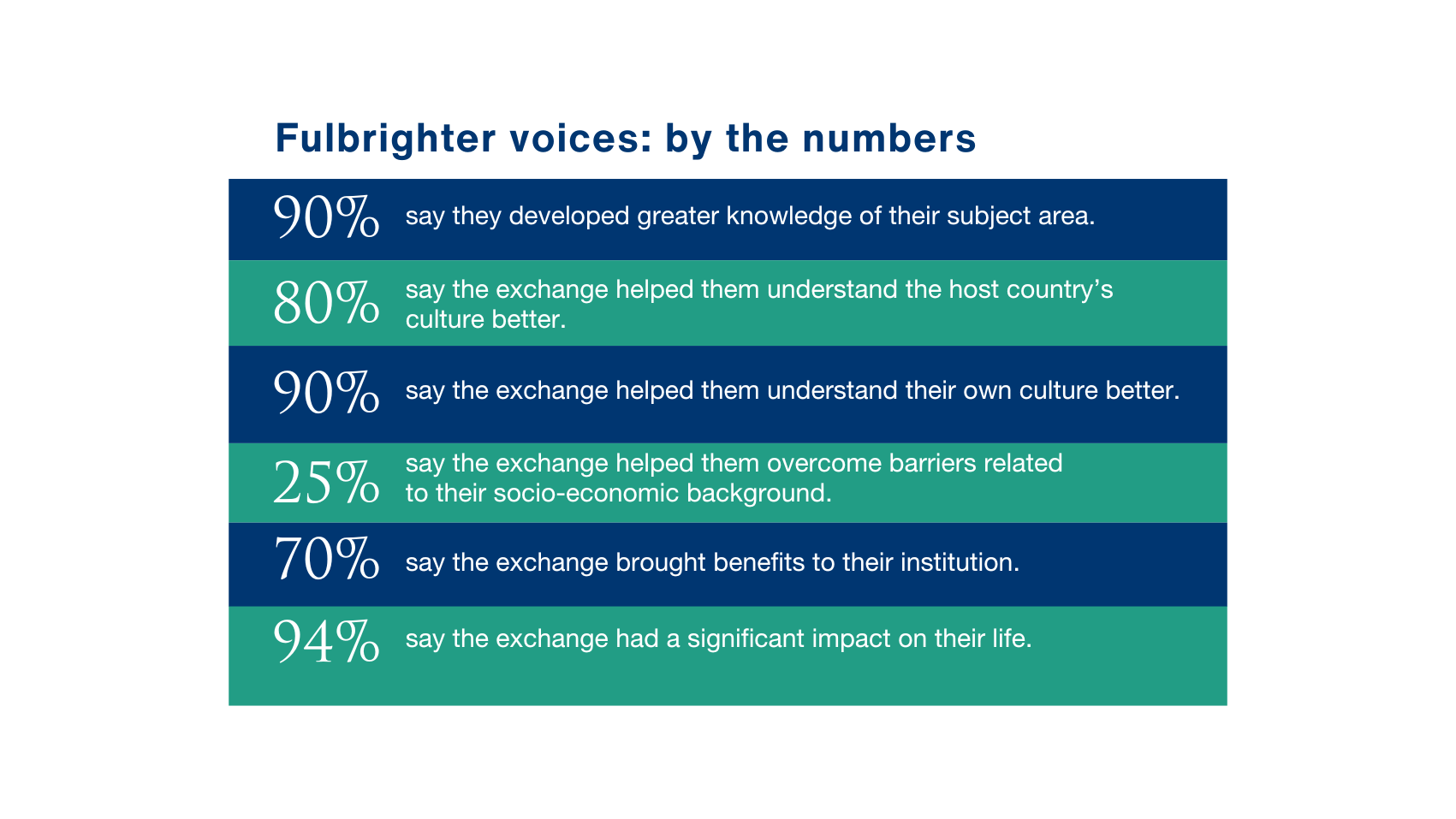‘I consider this exchange experience, gained at the age of 25, was of enormous influence and has underpinned much of what I have achieved in the 35 years since.’
In launching our Widening Participation Fund, we’ve been evaluating the Fulbright experience through the lens of our Theory of Change.
Time and again we hear how transformative the Fulbright experience can be and the many dimensions in which this can manifest. Anecdotally, these stories are incredibly powerful (such as that of Dr. William Campbell!), but at a time when we need to make the case for increased funding and for investing in the next generation of Fulbrighters, it’s important that we determine in a more systematic way the impact a Fulbright award can have.
Over the past few months, we have been working with Professor Graeme Atherton at the University of West London to gather qualitative and quantitative evidence through surveys and focus groups with a number of our alumni. Our questions were based on the four pillars of our Theory of Change, namely:
-
The US-UK Fulbright Commission’s promotion of academic excellence and curiosity advances human knowledge.
-
The Fulbright recruitment and selection process invests in human potential thereby increasing social mobility.
-
The immersive experience of exchange between the US and UK – whether as Fulbright awardee or Education USA advisee – deepens understanding of the other country and fosters compassionate leadership.
-
Communities created through Fulbright fellowship cohorts and research/teaching collaboration have the potential to contribute to global problem solving.

It’s significant that a quarter of those surveyed responded that the Fulbright exchange helped them overcome barriers associated with their socio-economic background. While we’re striving to ensure our grants keep up with the burgeoning cost of living, in the current economic climate, we’re increasingly concerned that international education exchange will become available only to those who can afford it. Two of our fundamental objectives – investing in human potential and building a collaborative community of changemakers -- are at serious risk without us widening participation through inclusive excellence. Ensuring accessibility is key to achieving our Theory of Change outcomes.
As much as we hear that the Fulbright experience is transformative, we also often hear that our alumni have a genuine desire to ‘give back.’ It’s in this spirit that we ask the Fulbright community to join with us by making a regular donation to our Widening Participation campaign – a fund that will allow us to channel financial resources toward making more fully funded awards available. We’re determined to keep achieving better outcomes for more people. We’d love to have you by our side for the journey.
If you’d like to know more about Professor Atherton’s research or enquire about making a donation to our Widening Participation Fund, please drop us a line at support@fulbright.org.uk
